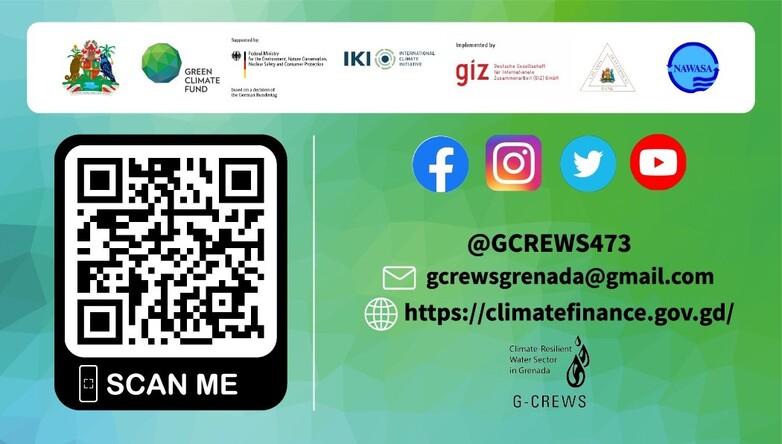Context
Water is a scarce resource in Grenada – a challenging situation made even more difficult by increasing average temperatures and more erratic rainfall. At the same time, more frequent heavy rainfall events are making water supply outages more common as high turbidity in the raw water supply increases the treatment time. Moreover, the rising sea level means that saltwater intrusion in coastal groundwater aquifers is further reducing the scarce water reserves for the country’s population. This development also jeopardises the growth of the Grenadian economy, especially in the agriculture and tourism sectors.
Objective
Grenada’s water sector is more climate-resilient and is managed more efficiently.
Approach
The project comprises five components:
Climate-resilient water management: The government is improving the overall management of the water sector with a unit to manage water resources. It is also laying the foundations for sustainable water resource management.
Climate-resilient water use: A fund set up by the Grenada Development Bank provides stakeholders in the agriculture and tourism sectors with allowances to implement water-saving measures in their businesses.
Climate-resilient facilities: The project is expanding the infrastructure and providing further storage tanks so that the water supply can be ensured even during the more frequent droughts or in the event of disasters.
Additional contribution of the water sector to Grenada’s climate goals: The national water authority is becoming more efficient in reducing water losses in the distribution system. This also involves integrating renewable energy sources.
Regional learning and replication: Other Caribbean countries are to benefit from the constant sharing of success stories and lessons learned from the project.

